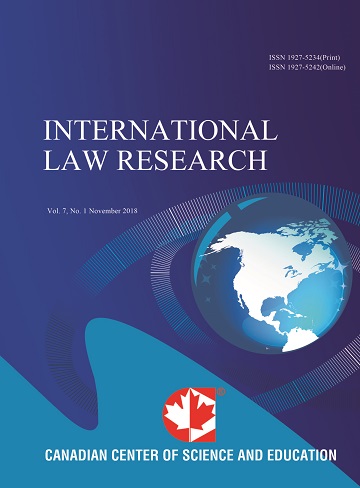Same-Sex Marriage versus Human Rights: The Legality of the “Anti Gay & Lesbian Law” in Nigeria
- Magaji Chiroma
- Awwal Magashi
Abstract
As an avenue to guarantee and ensure the enjoyment of right to freedom of private and family life, spouses have been permitted and encouraged by various laws to get married to one another. The concept of marriage has been generally understood and confined within the following meaning: “a legal union between a male and a female with a view to becoming husband and wife.” Such definition precludes any unionism that may occur between same-sex couples in a manner contrary to the law and public policy. In the recent past, the Government of Nigeria has signed into law a bill known as “Same-Sex Marriage (Prohibition) Bill, 2011”. The Bill prohibits a marriage between two same couples and all sort of matters connected therewith such as forming a union that has to do with same-sex marriage. The prohibition has been supported by the religious declarations, people’s culture, public policy and morals in the country. The passage of the Bill into law has attracted series of condemnations by some of the international community and the proponents of same-sex marriage. For it is said to have been enacted contrary to the human rights law and the Nigerian constitution. According to the proponents of same-sex marriage, the passage of the Bill into law is an attempt to deprive some minorities of their basic social rights such as right to freedom of private and family life; freedom to assemble peacefully; and freedom from discrimination as contained under the International, regional and domestic instruments. Hence according to them, the Enactment is illegal and unconstitutional. Hence, it is against this controversy that the paper attempts to examine the legality of the anti- gay law in Nigeria with a view to drawing a line of demarcation between the protection of human rights on one part and the right of gays to marry one another on the other part.- Full Text:
 PDF
PDF
- DOI:10.5539/ilr.v4n1p11
Journal Metrics
h-index (2017): 2
i10-index (2017): 0
h5-index (2017): N/A
h5-median (2017): N/A
Index
- CNKI Scholar
- COPAC
- CrossRef
- DTU Library
- EuroPub Database
- Excellence in Research for Australia (ERA)
- Ghent University Library
- Google Scholar
- Harvard Library
- Infotrieve
- Jisc Library Hub Discover
- LOCKSS
- Open J-Gate
- PKP Open Archives Harvester
- Publons
- ROAD
- Scilit
- SHERPA/RoMEO
- Stanford Libraries
- Ulrich's
- UniCat
- Universe Digital Library
- UoS Library
- WorldCat
Contact
- Joseph TaiEditorial Assistant
- ilr@ccsenet.org
